First-of-Its-Kind PETA Video: Workers Tear Live Animals Apart, Throw Them Away in Florida's Stone Crab Industry
Update (March 22, 2023): In October 2022, Michael Bossert pleaded no contest to cruelty-to-animals and possession charges stemming from PETA’s complaint and video showing him slamming a shark against the side of a boat and apparently carving out chunks of the animal’s flesh to use as bait. Bossert was hit with 12 months of probation and a fine, in addition to court costs, and required to do community service. Sign the petition urging the FWC to end stone crab mutilation.
In late 2021, an eyewitness documented workers catching crabs off the Florida Keys for sale to Keys Fisheries—the state’s largest seller of stone crab claws—and observed that they tore the crabs’ claws off and threw the mutilated animals back into the water, where many likely died of their injuries or starvation. But this excruciatingly painful practice, which would otherwise violate Florida’s cruelty-to-animals law, is not unique to Keys Fisheries—it’s standard in the industry and actually required by the state.
Keys Fisheries supplies Whole Foods and Winn-Dixie stores in Florida as well as Joe’s Stone Crab restaurant in Miami Beach.
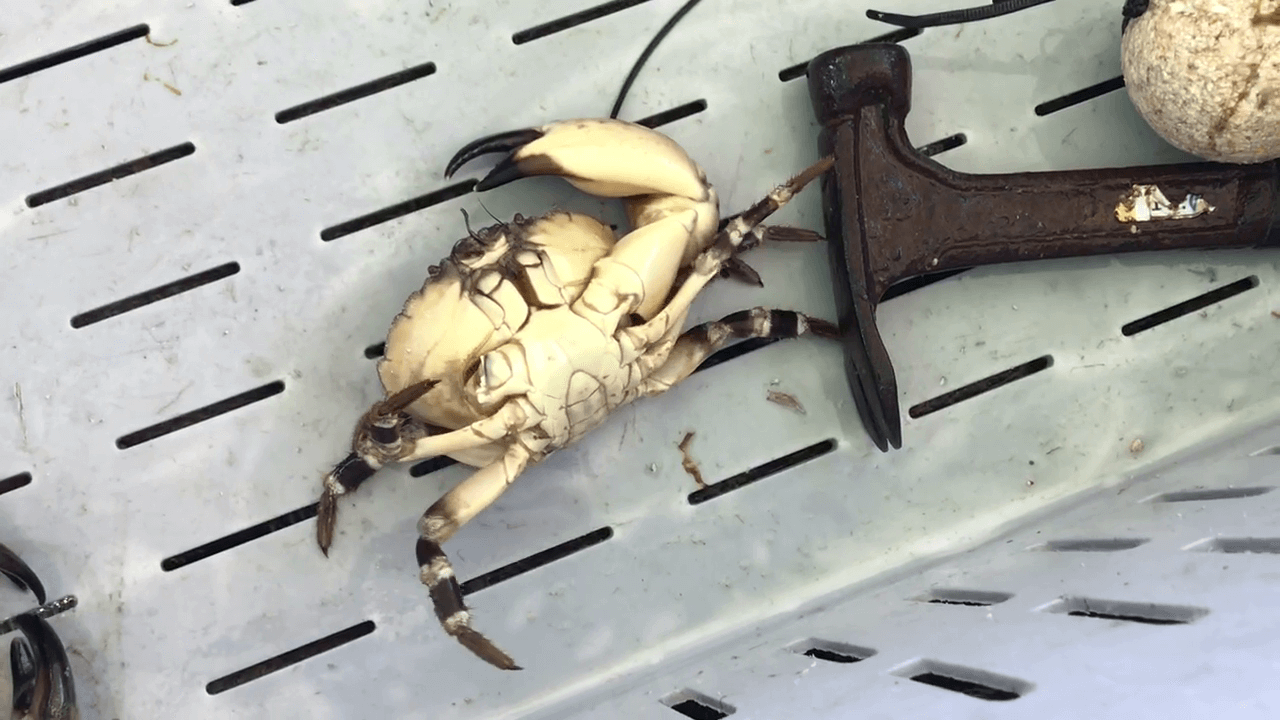
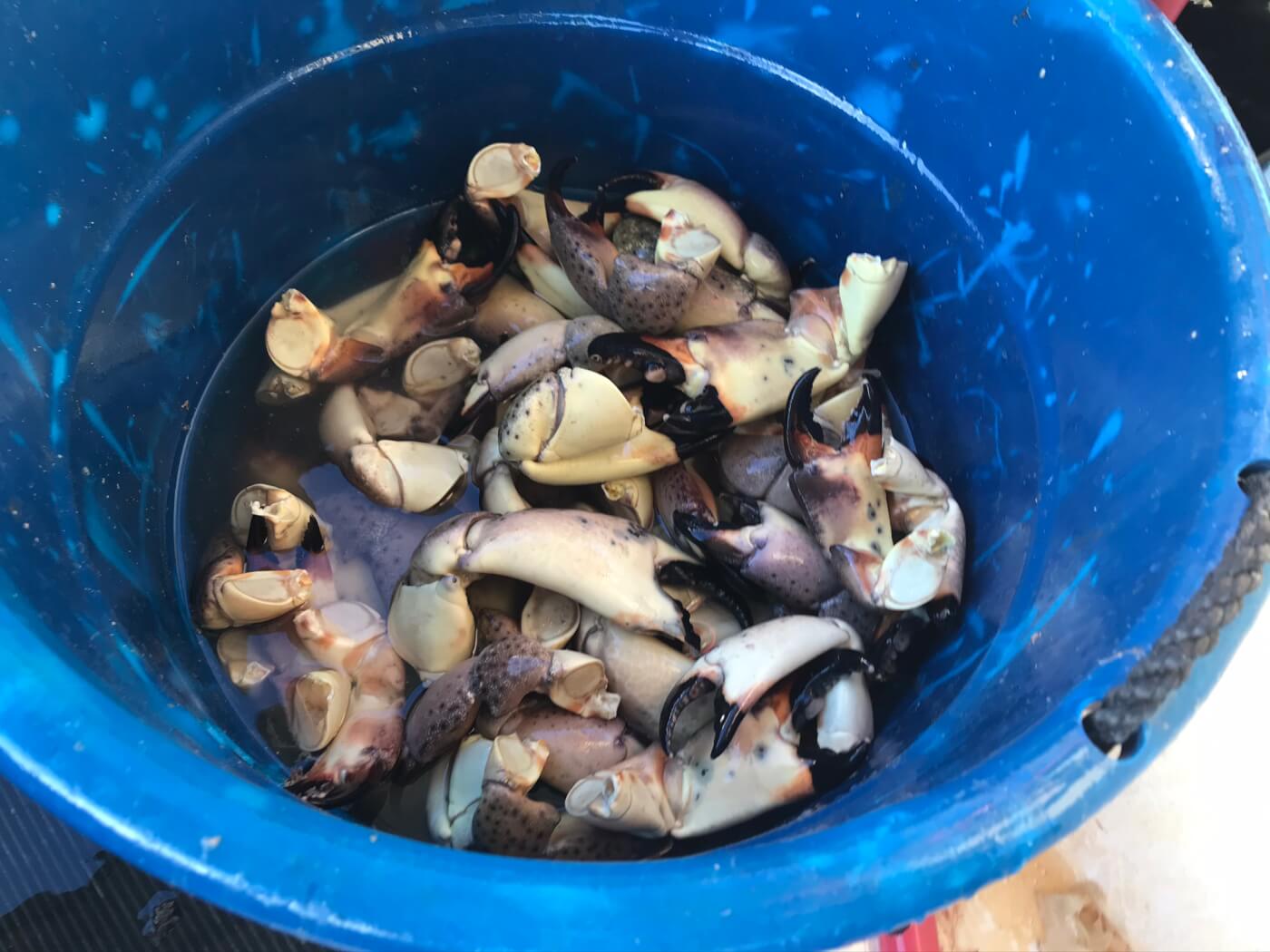
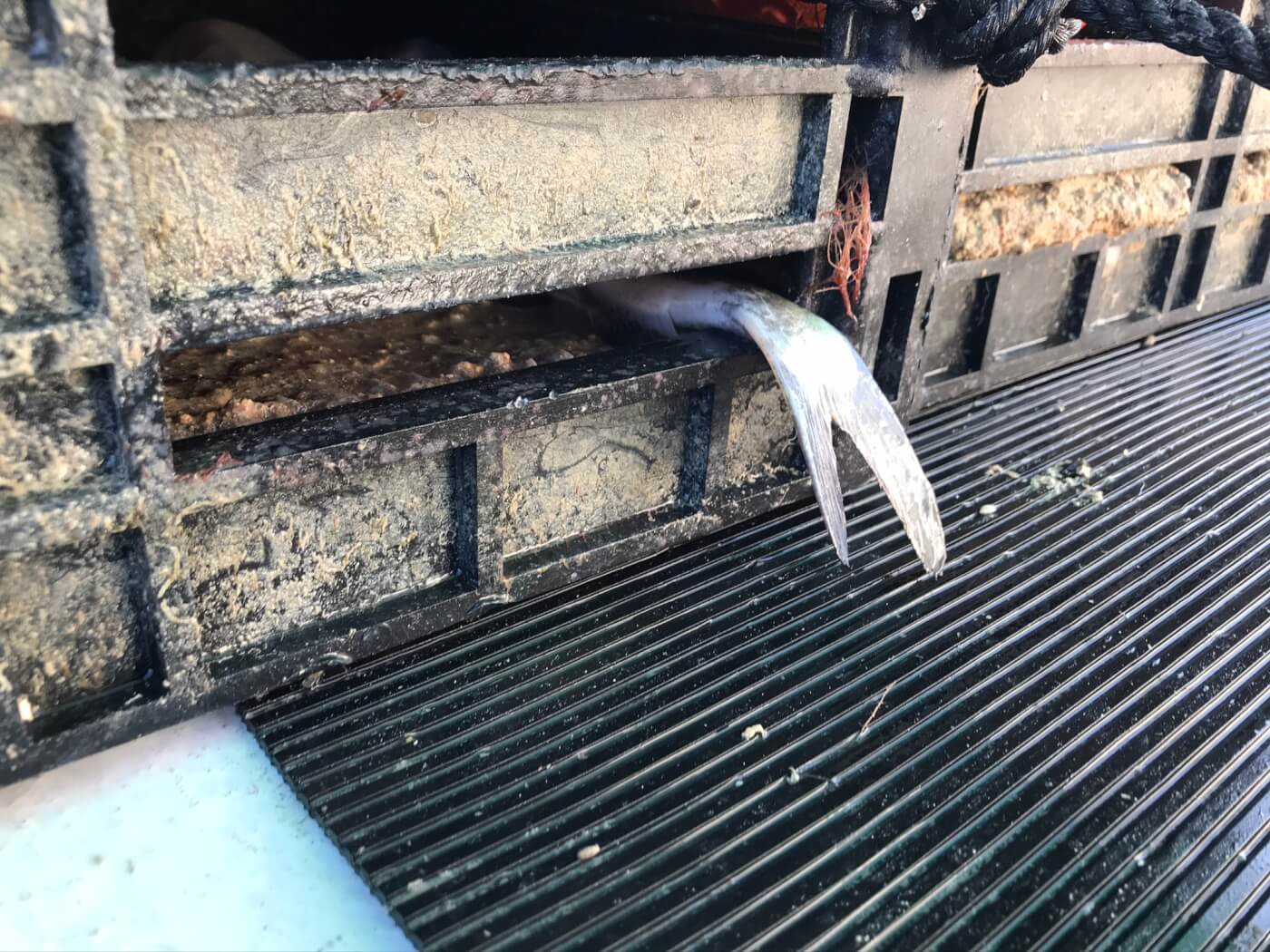

Workers Tear Off Stone Crab Claws for Profit
Workers hauled trapped stone crabs out of the water and tore their claws off, causing extreme pain, then threw the mutilated animals into the boat’s wake from high above the water. The legs of some of these mutilated crabs were also torn off when workers threw them into bins.
Crabs learn fast and retain information so as not to repeat their mistakes. Scientists have found that crabs not only experience pain but also remember it and learn to avoid situations that previously caused them suffering. Studies have also found that they respond to anesthetics and attempt to tend to their wounds.
Despite all the evidence that crabs endure profound suffering when their claws are torn off, this cruelty is standard practice in the industry. Florida regulations actually require that crabs whose claws have been torn off be returned to the water, supposedly to regenerate them—wishful thinking that allows the state’s $30 million a year stone crab trade to keep profiting from extreme animal suffering.
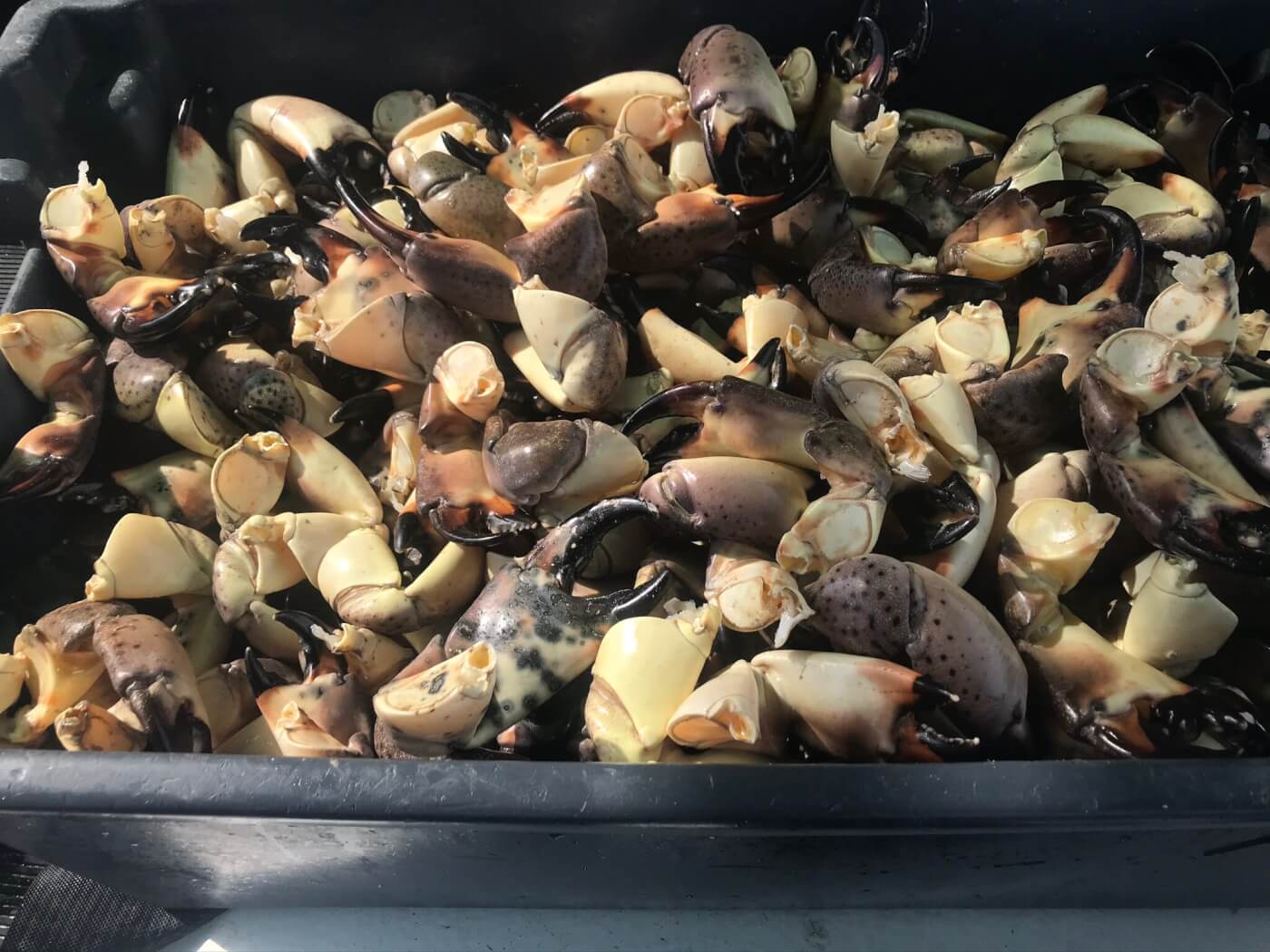
Crabs Bleed Out, Half Die Within Hours
Not only does tearing off a crab’s claw cause excruciating pain, the vast majority of crabs maimed in this way also die as a result.
One worker admitted that breaking off crabs’ claws in certain ways would cause the animals to “bleed out and die.” The Florida Fish and Wildlife Conservation Commission (FWC)—which regulates the state’s stone crab industry—found that an average of 31% of claws showed evidence that muscle was also pulled from the crabs’ bodies, indicating that those animals likely bled to death.
An FWC study “found a very high mortality rate associated with declawing”—40.8% of crabs died when one claw was torn off and 62.9% of crabs died when both claws were, while another study found that 100% of stone crabs died after incurring wounds from a mutilation as small as 7 millimeters in width, approximately the size of a pencil eraser, and suffering for hours or days. A study by the Everglades National Park Service found that more than three-quarters of stone crabs deaths caused by this cruelty occurred within 24 hours.
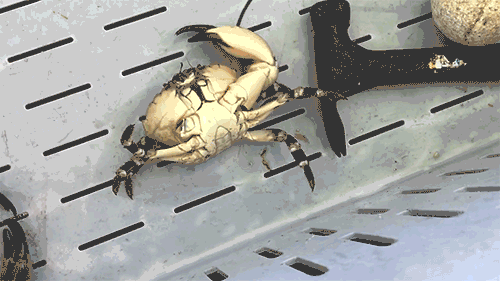
Stone Crabs Starve, Unable to Protect or Feed Themselves
Workers broke both claws off most crabs. Removing even one claw compromises crabs’ ability to feed and defend themselves, leading many to endure prolonged starvation or fall victim to predators. Without one or both claws, crabs can’t open the shells of oysters and mussels—an important part of their diet.
According to the FWC, even if the crabs manage to survive the initial loss of one or both claws and the resulting effects, it takes them up to three years to regrow claws that are 95% of their original size.
While the agency requires that crabs’ claws reach a certain length before people can remove them, the eyewitness saw workers tear some claws off without measuring them.
As animal behavior expert Professor Robert Elwood put it, “The idea [that crabs] will survive and regenerate the[ir] claws is pie in the sky.”
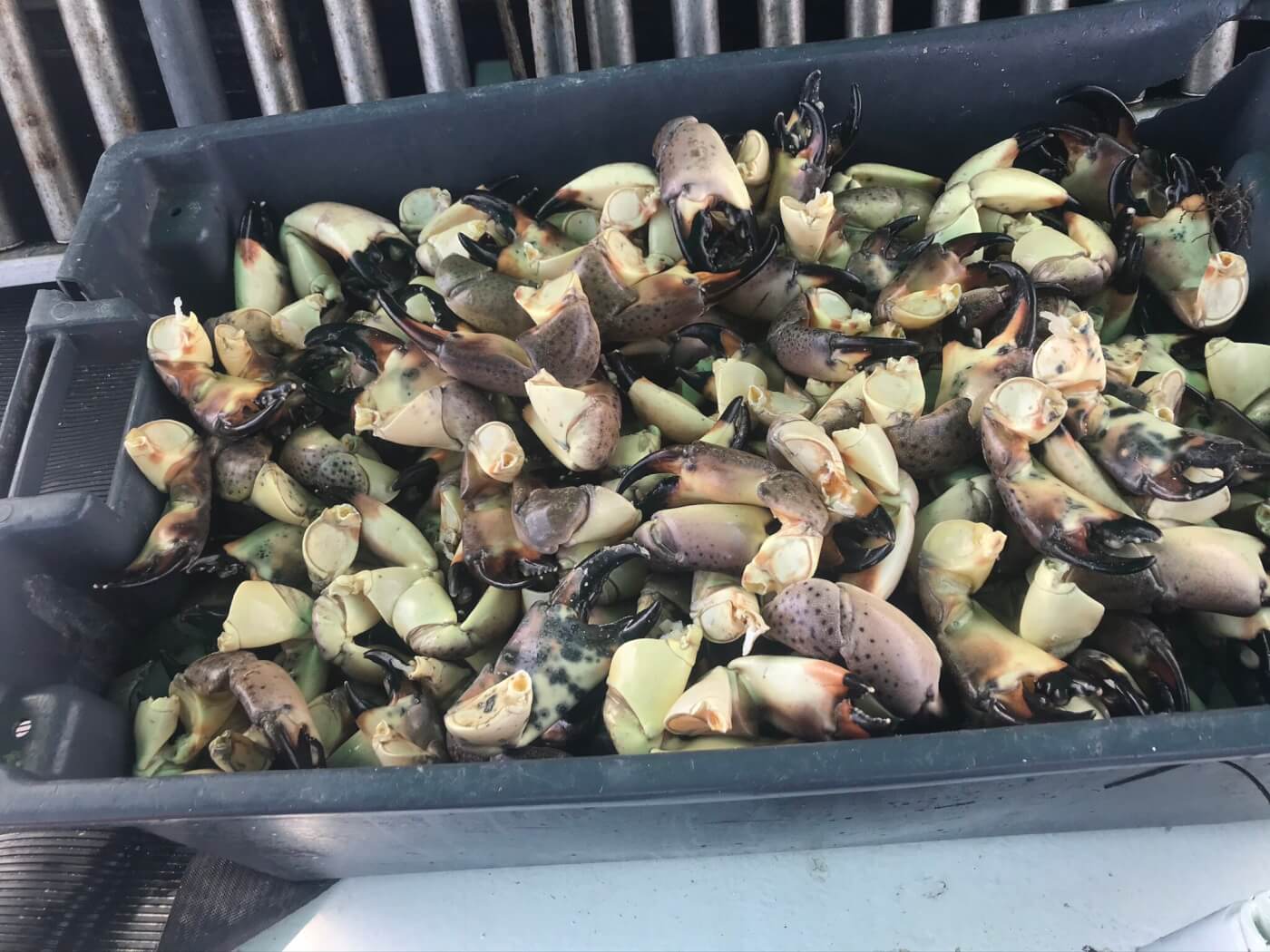
Workers Tear Lobsters and Octopuses Apart, Slam a Shark Against the Side of a Boat
After breaking off about $2,200 worth of crabs’ claws in one day, workers also trapped lobsters—animals who, like humans, have a long childhood and carry their young for nine months. Then they tore some of the live animals’ tails off—which is excruciatingly painful—before throwing them back into the water.
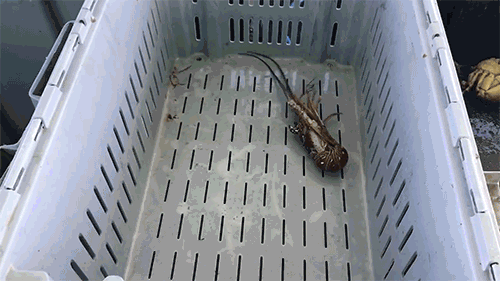
One worker repeatedly slammed a shark who had been caught in a lobster trap against the side of the boat and apparently carved off chunks of the animal’s flesh to use as bait.
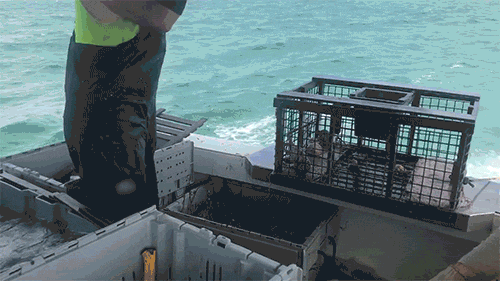
Octopuses—who are highly intelligent animals known to use tools and execute daring escapes from aquarium tanks—were tossed into a cooler to be cooked and eaten later. One man tore the mantle—which houses an octopus’s three hearts and some other organs but not the brain—off several octopuses, apparently in a crude attempt to kill them. One mutilated octopus whose mantle was torn off writhed around after being tossed into a bin.
A worker hit several fish with a hammer to kill them so that their flesh could be used to bait the traps, and workers left other fish to suffocate inside the traps.
You Can Help Stop This Stone Crab Torture!
The best thing that you can do for crabs, lobsters, and other sea animals is to go vegan and leave them off your plate. From “crabcakes” made out of jackfruit to fish-free tuna, healthy and delicious vegan seafood options have never been easier to find.
Please also sign the petition urging the FWC to end stone crab mutilation. Call on the agency to prohibit the cruel and unsustainable practice of capturing stone crabs and tearing off their claws.
Click here to share your gratitude with the eyewitness who revealed this cruelty. If you think you have what it takes to carry out investigations like this one, we want to hear from you.
